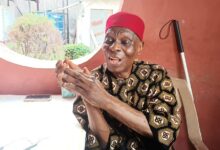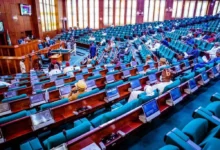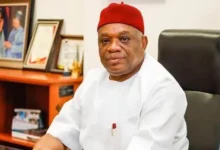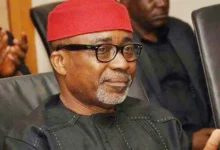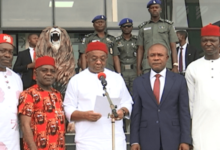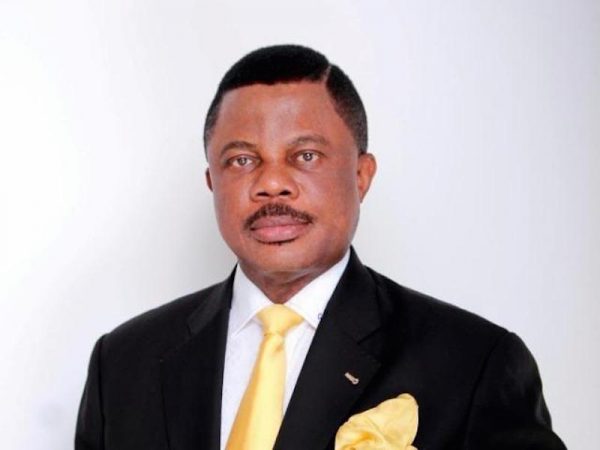
Accused N4 billion Theft: Obiano contests jurisdiction of Abuja court
Willie Obiano, a former governor of Anambra, has contested the Abuja Federal High Court’s authority to hear the fraud case brought against him by the Economic and Financial Crimes Commission.

Accused N4 billion Theft: Obiano contests jurisdiction of Abuja court
The former governor was charged with nine counts by the EFCC on January 24. The charges included allegations of money laundering totaling N4 billion.
According to the accusations, Obiano allegedly stole N4,008,573,350 in security votes from Anambra State between 2014 and 2022 while he served as governor.
The EFCC accused him of moving N1.2 billion from the state security vote account to another account owned by Moment of Peace Ventures, an organization that has no business dealings with the state, through his Private Principal Secretary.
On the other hand, Obiano entered a not guilty plea to every count.
Sylvanus Tahir, the EFCC’s attorney, informed the court during the case’s Monday resumed hearing that he was prepared for the matter to be heard and that he would be bringing three witnesses.
Onyechi Ikpeazu (SAN), the defendant’s attorney, however, informed the court that he had filed a motion contesting the court’s jurisdiction to hear the case.
He asked the court to use its discretion and rule on his motion before the trial starts.
Tahir said that the process was served to him on Monday at around 9:20 a.m. when asked if he had received it.
As a result, he mentioned that he had not yet submitted a reply.
“This process is a blatant waste of time,” Tahir stated. Since the charge involved potential money laundering, the Supreme Court resolved the jurisdictional dispute, granting the Federal High Court the inherent authority to try the case.
But Justice Inyang Ekwo, the trial judge, interrupted and pleaded with him to let the court decide on the application.
“It is not for you to inform the court of the Supreme Court’s ruling on the matter,” he stated. Answer the motion and let the judge make the final decision.
He then postponed the hearing until March 7, 2024, to consider the motion.




